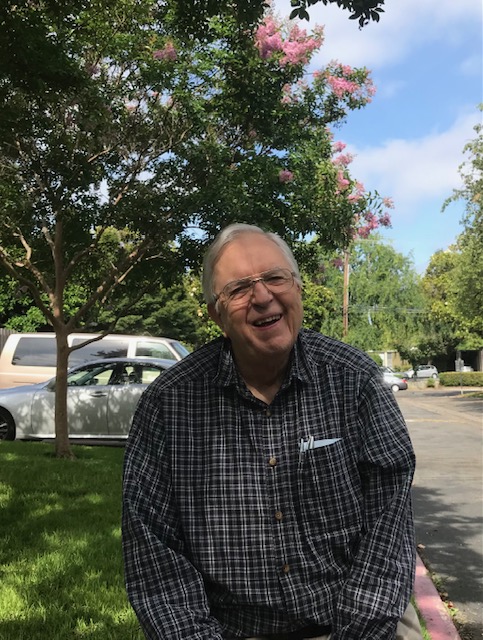Three Psalms 102-104
Dedicated to Bryce Self, a Servant of God
Psalm 102 is the prayer of one individual in grave personal sistress.
Psalm 103 remembers God's goodness in times past.
Psalm 104 rejoices as much prayer is answered.

Psalm 102
Prayer to the Eternal King for Help
A prayer of one afflicted, when faint and pleading before the Lord.
1 Hear my prayer, O Lord;
let my cry come to you.
2 Do not hide your face from me
on the day of my distress.
Incline your ear to me;
answer me speedily on the day when I call.
3 For my days pass away like smoke,
and my bones burn like a furnace.
4 My heart is stricken and withered like grass;
I am too wasted to eat my bread.
5 Because of my loud groaning
my bones cling to my skin.
6 I am like an owl of the wilderness,
like a little owl of the waste places.
7 I lie awake;
I am like a lonely bird on the housetop.
8 All day long my enemies taunt me;
those who deride me use my name for a curse.
9 For I eat ashes like bread,
and mingle tears with my drink,
10 because of your indignation and anger;
for you have lifted me up and thrown me aside.
11 My days are like an evening shadow;
I wither away like grass.
12 But you, O Lord, are enthroned for ever;
your name endures to all generations.
13 You will rise up and have compassion on Zion,
for it is time to favour it;
the appointed time has come.
14 For your servants hold its stones dear,
and have pity on its dust.
15 The nations will fear the name of the Lord,
and all the kings of the earth your glory.
16 For the Lord will build up Zion;
he will appear in his glory.
17 He will regard the prayer of the destitute,
and will not despise their prayer.
18 Let this be recorded for a generation to come,
so that a people yet unborn may praise the Lord:
19 that he looked down from his holy height,
from heaven the Lord looked at the earth,
20 to hear the groans of the prisoners,
to set free those who were doomed to die;
21 so that the name of the Lord may be declared in Zion,
and his praise in Jerusalem,
22 when peoples gather together,
and kingdoms, to worship the Lord.
23 He has broken my strength in mid-course;
he has shortened my days.
24 ‘O my God,’ I say, ‘do not take me away
at the mid-point of my life,
you whose years endure
throughout all generations.’
25 Long ago you laid the foundation of the earth,
and the heavens are the work of your hands.
26 They will perish, but you endure;
they will all wear out like a garment.
You change them like clothing, and they pass away;
27 but you are the same, and your years have no end.
28 The children of your servants shall live secure;
their offspring shall be established in your presence.
|

Psalm 103
Thanksgiving for God’s Goodness
Of David.
1 Bless the Lord, O my soul,
and all that is within me,
bless his holy name.
2 Bless the Lord, O my soul,
and do not forget all his benefits—
3 who forgives all your iniquity,
who heals all your diseases,
4 who redeems your life from the Pit,
who crowns you with steadfast love and mercy,
5 who satisfies you with good as long as you live
so that your youth is renewed like the eagle’s.
6 The Lord works vindication
and justice for all who are oppressed.
7 He made known his ways to Moses,
his acts to the people of Israel.
8 The Lord is merciful and gracious,
slow to anger and abounding in steadfast love.
9 He will not always accuse,
nor will he keep his anger for ever.
10 He does not deal with us according to our sins,
nor repay us according to our iniquities.
11 For as the heavens are high above the earth,
so great is his steadfast love towards those who fear him;
12 as far as the east is from the west,
so far he removes our transgressions from us.
13 As a father has compassion for his children,
so the Lord has compassion for those who fear him.
14 For he knows how we were made;
he remembers that we are dust.
15 As for mortals, their days are like grass;
they flourish like a flower of the field;
16 for the wind passes over it, and it is gone,
and its place knows it no more.
17 But the steadfast love of the Lord is from everlasting to everlasting
on those who fear him,
and his righteousness to children’s children,
18 to those who keep his covenant
and remember to do his commandments.
19 The Lord has established his throne in the heavens,
and his kingdom rules over all.
20 Bless the Lord, O you his angels,
you mighty ones who do his bidding,
obedient to his spoken word.
21 Bless the Lord, all his hosts,
his ministers that do his will.
22 Bless the Lord, all his works,
in all places of his dominion.
Bless the Lord, O my soul.
|

Psalm 104
God the Creator and Provider
1 Bless the Lord, O my soul.
O Lord my God, you are very great.
You are clothed with honour and majesty,
2 wrapped in light as with a garment.
You stretch out the heavens like a tent,
3 you set the beams of your chambers on the waters,
you make the clouds your chariot,
you ride on the wings of the wind,
4 you make the winds your messengers,
fire and flame your ministers.
5 You set the earth on its foundations,
so that it shall never be shaken.
6 You cover it with the deep as with a garment;
the waters stood above the mountains.
7 At your rebuke they flee;
at the sound of your thunder they take to flight.
8 They rose up to the mountains, ran down to the valleys
to the place that you appointed for them.
9 You set a boundary that they may not pass,
so that they might not again cover the earth.
10 You make springs gush forth in the valleys;
they flow between the hills,
11 giving drink to every wild animal;
the wild asses quench their thirst.
12 By the streams the birds of the air have their habitation;
they sing among the branches.
13 From your lofty abode you water the mountains;
the earth is satisfied with the fruit of your work.
14 You cause the grass to grow for the cattle,
and plants for people to use,
to bring forth food from the earth,
15 and wine to gladden the human heart,
oil to make the face shine,
and bread to strengthen the human heart.
16 The trees of the Lord are watered abundantly,
the cedars of Lebanon that he planted.
17 In them the birds build their nests;
the stork has its home in the fir trees.
18 The high mountains are for the wild goats;
the rocks are a refuge for the coneys.
19 You have made the moon to mark the seasons;
the sun knows its time for setting.
20 You make darkness, and it is night,
when all the animals of the forest come creeping out.
21 The young lions roar for their prey,
seeking their food from God.
22 When the sun rises, they withdraw
and lie down in their dens.
23 People go out to their work
and to their labour until the evening.
24 O Lord, how manifold are your works!
In wisdom you have made them all;
the earth is full of your creatures.
25 Yonder is the sea, great and wide,
creeping things innumerable are there,
living things both small and great.
26 There go the ships,
and Leviathan that you formed to sport in it.
27 These all look to you
to give them their food in due season;
28 when you give to them, they gather it up;
when you open your hand, they are filled with good things.
29 When you hide your face, they are dismayed;
when you take away their breath, they die
and return to their dust.
30 When you send forth your spirit, they are created;
and you renew the face of the ground.
31 May the glory of the Lord endure for ever;
may the Lord rejoice in his works—
32 who looks on the earth and it trembles,
who touches the mountains and they smoke.
33 I will sing to the Lord as long as I live;
I will sing praise to my God while I have being.
34 May my meditation be pleasing to him,
for I rejoice in the Lord.
35 Let sinners be consumed from the earth,
and let the wicked be no more.
Bless the Lord, O my soul.
Praise the Lord!
|

Dr. Thomas Constable's Expository Notes
Psalms 102
1. Request for a quick answer 102:1-2. The writer felt a desperate need for the Lord’s immediate intervention in his painful situation. His words reveal the intensity of his pain.
Psalms 102
Another anonymous writer poured out his personal lament to Yahweh (cf. Psalms 22, 69, 79). He felt overwhelmed due to an enemy’s reproach. He called out for help from the God he knew would not forsake him. This is another penitential psalm as well as a personal lament (cf. Psalms 6; Psalms 32; Psalms 38; Psalms 51; Psalms 103; Psalms 143).
Several statements illustrate how the psalmist felt. He had lost many good days to suffering. His sorrow had made his bones ache; his emotional state was affecting his physical condition. He felt withered under the heat of his affliction. He had become so preoccupied that he would forget to eat. Consequently his stomach was growling and he was losing weight. He evidently felt very much alone, like a lonely pelican in the wilderness. He felt as isolated as an owl, and he could not sleep.
2. Description of the affliction 102:3-11
His enemies had also ridiculed him continually, even using him as an example of someone God had cursed. The ashes he had put on his head as a sign of his mourning had evidently fallen down on his food. He had eaten so many of them he could say he had consumed them like bread. Likewise his many tears had dropped into the cup from which he drank. Perhaps these are figurative ways of describing his grief.
He felt his condition was the result of divine discipline. He believed his life was ending, as the lengthening shadows signal the approaching end of a day.
In contrast to his own brief life, the suffering psalmist voiced his belief that God would continue forever. The "thou" ("you," NIV) is emphatic in the Hebrew text, stressing the contrast. He believed God would shortly execute justice for His own.
3. Confidence in Yahweh’s restoration 102:12-22
The godly in Israel loved Zion and sorrowed over its destitute condition. The description of the city in Psalms 102:14sounds as if it had suffered destruction. The writer was confident that God would restore the city as He had promised. This assurance gave him a more positive attitude.
Confident of eventual restoration, the psalmist spoke of future generations praising God for His faithfulness. He pictured God attentively looking down from heaven and observing His enslaved people. The writer may have been describing conditions as they existed during the Babylonian exile.
The psalmist looked forward to a gathering again in Zion. This took place to a limited extent after the exile, but it will occur on a worldwide scale in the Millennium.
4. Hope in God’s ceaseless existence 102:23-28
It seemed as though God was killing the psalmist prematurely. He prayed for a continuation of his life. This request led him to reflect further on the duration of God’s existence. To picture God’s ceaseless continuance, he referred to the creation (Genesis 1) and then the consummation of the present heavens and earth (Revelation 21:1; cf. 2 Peter 3:10). His point was that God will outlast His creation. Really God is eternal, having no beginning or ending (Psalms 102:27). Therefore He will preserve the children of His servants who were then in danger of dying or had already died.
The writer to the Hebrews applied Psalms 102:25-27 to Jesus Christ (Hebrews 1:10-12; Hebrews 13:8). He is the Person of the Trinity who created and sustains all things (Colossians 1:16-17). These verses are some of the clearest and most majestic revelations of God’s eternal nature in Scripture. This revelation gave the psalmist hope in his personal distress. In the same way, knowledge of God’s changeless character can be a great comfort to all of God’s people when they suffer. It helps to view personal suffering in the context of eternity.

Dr. Constable's Expository Notes
Psalms 103
David called on himself to bless the Lord wholeheartedly because of all His many blessings. Note the many references to "all" and its equivalents in this psalm. Some groups of Christians (e.g., some Amish) give thanks to God at the end of their meals as well as at the beginning.
1. Praise for God’s mercy to individuals 103:1-5
Psalms 103
"The four psalms that close Book Four of the book of Psalms (90-106) emphasize praise to the Lord for several reasons: His benefits to His people (103), His care of His creation (104), His wonderful acts on behalf of Israel (105), His longsuffering with His people’s rebellion (106)." [Note: Wiersbe, The . . . Wisdom . . ., p. 276.]
This popular Davidic psalm of individual thanksgiving reviews God’s mercies and expresses confident hope in His covenant promises. It contains no requests. Though there is no real connection between this psalm and the preceding one, this one expresses thanks for answered prayer, which Psalms 102 requested. It was the inspiration for H. F. Lyte’s popular hymn, "Praise, My Soul, the King of Heaven."
"This [Psalms 103] is perhaps the best-known and best-loved of all the hymns." [Note: Brueggemann, p. 160.]
God’s blessings that people enjoy as benefits include forgiveness of sins, healing from sickness, deliverance from death, enrichment of life, satisfaction, and rejuvenation. Eagles remain strong to the end of their lives. Likewise, God enables His people to remain spiritually vigorous until death.
"The expression your youth is renewed like an eagle’s may allude to the phenomenon of molting, whereby the eagle grows new feathers." [Note: The NET Bible note on 103:5.]
Psalms 103:6 is a topic sentence that introduces what follows. Psalms 103:7-8describe God’s dealings with Israel at Mt. Sinai. The fact that God revealed Himself to Moses and the Israelites indicates His great compassion and grace. Psalms 103:8 quotes Exodus 34:6. It restates four great characteristics about God.
2. Testimony to God’s compassion to His people 103:6-18
These verses illustrate the truth of Psalms 103:8. God’s compassion is clear in that He does not constantly accuse or antagonize us, even though we constantly sin (cf. Ephesians 6:4). He is slow to anger and He does not maintain His anger continually. His gracious character is obvious in that He does not punish us for our sins immediately or completely, as we deserve. He does not pay us back what we deserve either. His loyal love (Heb. hesed) with those who fear Him is as limitless as the sky. Furthermore, He separates the guilt of our sins from us completely (cf. Romans 8:1).
Many students of Psalms 103:12 have noted that if someone travels north or south he finally arrives at a pole from which he can proceed no farther north or south. However, if someone travels east or west, he never reaches such a point. God did not say He forgives (or removes) our sins as far as the north is from the south, but as far as the east is from the west, namely: to infinity-in degree or distance.
God’s compassion is father-like in that He is mindful of our finite creaturely limitations.
"He knows us even better than we know ourselves." [Note: Kidner, Psalms 73-150, p. 366.]
Psalms 103:15-16 beautifully describe the transitory nature of human life. It is both frail and short-lived. In contrast, God’s loyal love to those who fear Him abides strong forever. It transcends generations and continues on to the descendants of those who obey His law (Psalms 103:17-18; cf. Exodus 20:5-6).
3. Praise for God’s sovereignty over all 103:19-22
God reigns from heaven as King over all. His authority extends to every created thing.
"The central theme of the book of Psalms, which its prayers assume and its songs of praise affirm, is God’s kingship. . . .
"The book’s theological message may be summarized as follows: As the Creator of all things, God exercises sovereign authority over the natural order, the nations, and Israel, His unique people. In His role as universal King God assures order and justice in the world and among His people, often by exhibiting His power as an invincible warrior. The proper response to this sovereign King is trust and praise." [Note: Chisholm, "A Theology . . .," p. 258.]
In view of His beneficent character, all creatures should bless the Lord. This includes his powerful angelic servants (cf. Hebrews 1:14) and all His creation. David ended this psalm as he began it-by exhorting himself to bless the Lord.
This great psalm glorifies God by expounding His character. It teaches us what God is like. We should join the rest of creation in praising God because of who He is.

Dr. Constable's Expository Notes
Psalms 104
1. Prologue 104:1a
The unnamed psalmist exhorted himself to bless God. The reasons he should do so follow.
The writer pictured God creating the heavens. Splendor and majesty clothe God in the sense that they manifest Him as clothing makes a statement about the person who wears it. Light is good because it brings life and blessing. When God created light He communicated part of His nature to His creation (Genesis 1:3-5). God created the sky as a tent above man’s head.
"As a camper readily pitches his tent somewhere, so God without exertion prepared the earth for habitation." [Note: VanGemeren, p. 658.]
The writer pictured God building a loft for Himself beyond the water above, namely, above the clouds. Riding on the clouds and wind symbolize God’s majestic authority (cf. Psalms 68:4). Psalms 104:4 is a poetic description of the angels (cf. Hebrews 1:7). Angels do His bidding as wind and fire carry out the will of God on earth.
2. Praise for the creation 104:1b-23
Psalms 104
This psalm of descriptive praise is quite similar to Psalms 103. Both begin and end with similar calls to bless God. However, God’s dealing with people is the subject of praise in Psalms 103, whereas His creation and sustenance of the world are the theme of Psalms 104.
"The structure of the psalm is modeled [sic] fairly closely on that of Genesis 1, taking the stages of creation as starting-points for praise. But as each theme is developed it tends to anticipate the later scenes of the creation drama, so that the days described in Genesis overlap and mingle here. . . . One of our finest hymns, Sir Robert Grant’s ’O worship the King’, takes its origin from this psalm, deriving its metre (but little else) from William Kethe’s 16th-century paraphrase, ’My soul, praise the Lord’ (the Old 104th)." [Note: Kidner, Psalms 73-150, p. 368.]
The psalmist described God creating the earth and then covering it with a blanket, as one would cover a new-born infant. He pictured the earth as though it were a building and stressed the stability of what God had made. He did not mean that the earth has literal foundations and is flat. God proceeded to separate the waters on the earth from those above the earth (Psalms 104:6-7; cf. Genesis 1:6-8). Then he separated the dry ground from the waters on the earth (Psalms 104:8-9; cf. Genesis 1:9-13). The seas are humanly unmanageable, but God set their boundaries and prohibited the waters from crossing them. The frequent references to God controlling water in this psalm demonstrate His sovereignty over all that is difficult to manage in creation.
God also caused springs to gush forth in the valleys so that the animal world could find water and drink. In other words, God provided graciously for His creatures’ needs. The song of the birds appears to be a song of praise to God for His provision (Psalms 104:12 b). God causes the vegetable world to produce for the benefit of His creatures as well. Clearly man’s ability to grow food depends on God’s more basic provisions. Wine makes people feel good, olive oil makes them look good, and food enables them to produce good things of all kinds. All of God’s provisions are for our welfare. He desires to bless humankind. He even provides for the welfare of trees, birds, and insignificant animals. God has indeed made the earth a remarkable habitat for humanity.
"Baal was supposedly the source of life’s staples, bread (Ugar. lhm), wine (yn), and oil (smn). In direct contradiction to this, the psalmists asserted that the Lord softens the earth with showers (Psalms 65:10) and brings forth ’food [Heb. lehem] from the earth; wine [yayin] that gladdens the heart of man, oil [semen] to make his face shine, and bread [lehem] that sustains his heart’ (Psalms 104:14-15)." [Note: Chisholm, "A Theology . . .," p. 261.]
God’s creation of daytime and nighttime were also provisions for God’s creatures, especially humankind (cf. Genesis 1:14-17).
The psalmist broke out in praise to Yahweh for His wisdom in creating as He did. He also acknowledged that all things God created belonged to Him. This even included the sea with all its hidden treasures. Leviathan probably refers to a large sea animal (cf. Job 41). [Note: A. Ross, p. 869; Roy B. Zuck, Job, p. 180.] In the ancient Near East it symbolized chaotic evil. [Note: Marvin H. Pope, Job, pp. 329-31. For an extensive study of the motif, see John Day, God’s Conflict with the Dragon and the Sea: Echoes of Canaanite Myth in the Old Testament.] This whole psalm is a polemic against the Canaanite gods who supposedly controlled the earth and the sea.
"Rather than being viewed as forces that oppose God, the sea and its creatures, including Leviathan, are presented as prime examples of God’s creative skill (Psalms 104:24-26)."
Psalms 104:27-30 describe how dependent all of God’s creatures are on Him for their lives. He supplies or withholds food. They live or die. The writer viewed God as creating new creatures whenever they come to life. This is the work of His Spirit (cf. Genesis 1:2). God is responsible for the birth of all animal life forms, indeed of all life forms. Whereas the Son of God is the agent of creation (Colossians 1:16), the Spirit provides life. For this reason God often described the Spirit as His breath (Genesis 2:7). The translators have rendered the Hebrew word ruach "breath," "spirit," "air," and "wind," depending on the context.
Verses 24-32
3. Praise of the Creator 104:24-32
The psalmist prayed that God’s glory would continue forever since He wields such powerful control over creation. He also wanted God to rejoice in His great works of creation. Only a touch or even a look from God makes creation respond violently.
4. Proper responses 104:33-35a
The psalmist vowed to praise God with his mouth and with his mind because of God’s creative and sustaining sovereignty. He also prayed that wicked sinners would perish from the earth. They are out of harmony with all of creation that responds submissively to the Creator’s commands.
"The psalmist is not vindictive in his prayer against the wicked but longs for a world fully established and maintained by the Lord, without outside interference." [Note: VanGemeren, p. 664.]
5. Epilogue 104:35b
The psalm concludes as it began, with the psalmist reminding himself to bless the Lord by praising Him. "Praise the Lord" translates the Hebrew haleluyah. The translators often simply transliterated this Hebrew expression as "hallelujah." There are 23 occurrences of this term in the psalms, and this is the first (cf. Psalms 105:45; Psalms 106:1; Psalms 106:48; Psalms 112:1; Psalms 113:1; Psalms 113:9; Psalms 115:18; Psalms 116:19; Psalms 117:2; Psalms 135:1; Psalms 135:3; Psalms 135:21; Psalms 146:1; Psalms 146:10; Psalms 147:1; Psalms 147:20; Psalms 148:1; Psalms 148:14; Psalms 149:1; Psalms 149:9; Psalms 150:1; Psalms 150:6). The only four occurrences of "hallelujah" in the New Testament are in Revelation 19:1; Revelation 19:3-4; Revelation 19:6, the context being the second coming of Christ.
This psalm is an exposition of Genesis 1. It stresses the sovereignty of Yahweh over all creation. All creatures should honor God and submit to Him because He is the source and sustainer of life.
Other Resources
Wikipedia Psalm 102
Wikipedia Psalm 103
Wikipedia Psalm 104
James Montgomery Boice Commentary (Amazon)
Psalm 18 by King David was written late is his life!




Lambert's Place
Email is Welcome Lambert Dolphin
Archive for Newsletters
Library Annex (since 2018)
June 25, 2022






